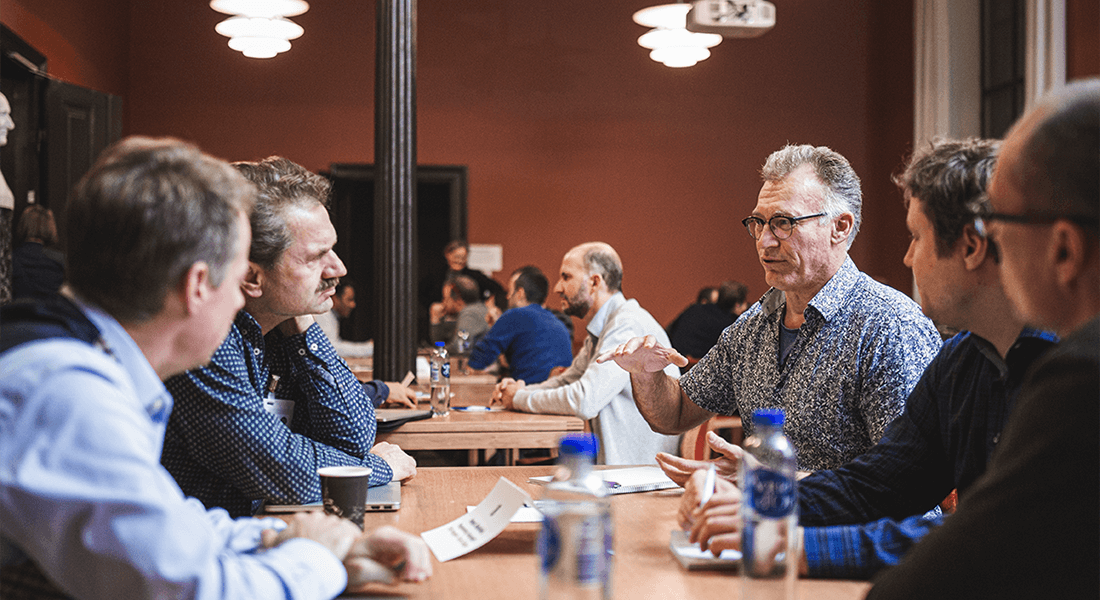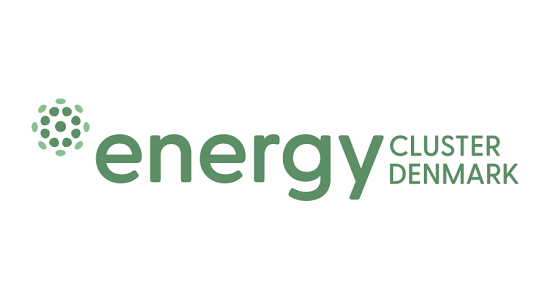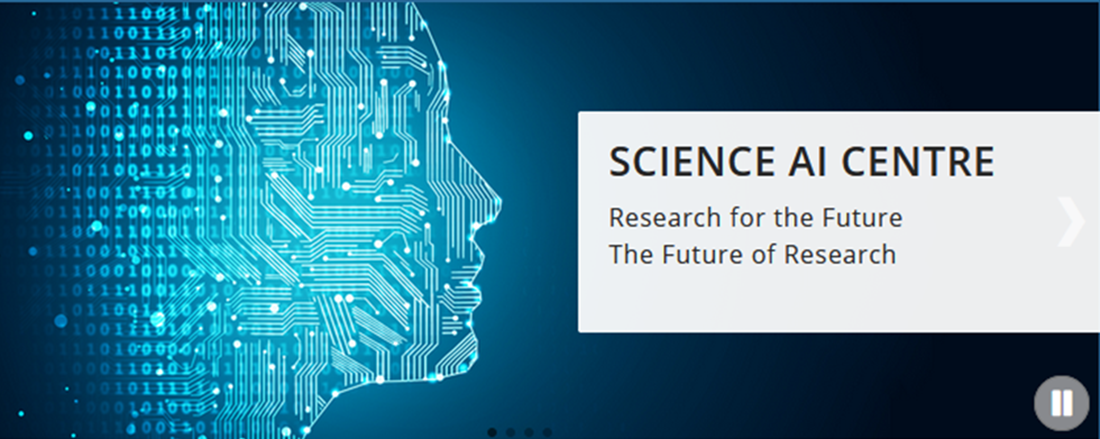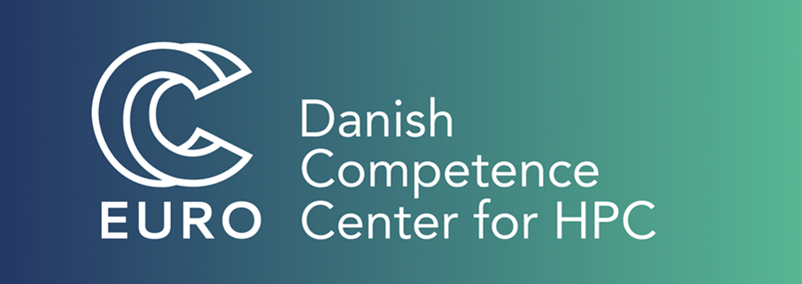Improve your company's ESG reporting

..... and get tips for working with energy and environmental data in your company
Learn more about ESG reporting
With a number of cases, we present the results of the 'Videnbro' project Scoped Carbon Accounting, which is funded by the Danish Agency for Higher Education and Science, facilitated by Energy Cluster Denmark, co-financed by the companies: Deon Digital, GrowGrounds, IPU in collaboration with Energinet.
We also present a model for fast product line ESG calculations.
Who is it relevant for?
The seminar is relevant for companies and individuals want to benefit from high-quality environmental data in your supply chain and be prepared for recent and coming environmental reporting requirements. You will be invited to get insights in the methods developed as part of the project. It is free to participate.
Meet the speakers and have a chat after the presentations
We round off the seminar with a small refreshment and a mingling and match-making session, where you can exchange experiences and discuss collaboration with the speakers and experts present.
It will also be possible to talk to DIKU's lab specialists about what is required in terms of computer capacity to work with your particular data, and about whether High Performance Computing (HPC) could be relevant for your company.
Program
Inge Hviid Jensen, Manager of DIKU Business Club, and Fritz Henglein, professor and PI for Scoped Carbon Accounting
Med en række cases præsenterer vi resultaterne af videnbroprojektet Scoped Carbon Accounting, som er finansieret af Uddannelses- og Forskningsstyrelsen, faciliteret af Energy Cluster Denmark, medfinansieret af Deon Digital, GrowGrounds og IPU i samarbejde med Energinet.
Abstract
We present virtual energy sourcing, a conceptual and technical framework for securely and verifiably tracking energy production through electric grids and in downstream energy transformation. It provides the same fine-grained guarantees as direct energy sourcing, without requiring physical or exclusive connections to specific energy production points. Additionally, it supports transfer and trading with electricity certificates, and it provides guarantees against common digital greenwashing/greenwishing methods such as time travel (of electricity consumption relative to production in common certificate schemes), double spending (of the same green energy productions by multiple consumers), non- or underreporting (of black energy sources used) and mass/energy balance arguments that ignore or disregard where the black energy goes.
We have built a demonstrator with fully functioning analytics and visualization of fine-grained 'total' electricity accounting, using (mostly) synthesized data for the Danish electricity grid. This accounts for both voluntary and forced transfers of fine-grained electricity production certificates, both green and black; fine-grained energy sourcing for electrolytic H2 production to certify how green the source energy in individual production batches is; and detailed carbon emissions accounting that can be used for planning, monitoring and optimization as well as for ex-post electricity-related Scope 2 carbon emissions accounting according to the EU Corporate Sustainability Reporting Directive (CSRD).
This is an outcome of a collaboration with Deon Digital, Energinet, Growgrounds and IPU. It has been made possible by a grant by EnergyCluster Denmark under the project name Scoped Carbon Accounting.
About the Speaker
Fritz Henglein is Professor of Programming Languages and Systems at DIKU and Head of Research at Deon Digital, a Danish/Swiss start-up developing secure and scalable digital contract technology for blockchain- and distributed ledger systems.
His research contributions are in semantic, logical and algorithmic aspects of programming languages, functional programming, domain-specific languages, digital contracts, reporting and analytics, and blockchain/distributed ledger systems.
Currently, he investigates algebraic modeling and programming techniques with applications to quantum computing, differential programming (machine learning), query processing, environmental reporting, bioinformatics and individualized medicine.
He chairs the DIKU Faculty Board and is member of multiple international research panels, steering, program and editorial committees.
Abstract
Deon Digital is the technology provider for BCX, the voluntary Carbon and Energy trading platform for the Malaysian National Exchange, Bursa Malaysia. We have designed and built the trading platform based on the Deon Digital Smart Financial Products, SFI system which went live in September 2023.
Accredited by the carbon registries Verra and Gold Standard; and energy registry Evident, BCX provide integrated issuance, trading, settlement, redemption, and off-boarding of Carbon Credits and Electricity Units.
The SFI system is a novel technology platform for Capital Market Infrastructure, Green Finance, and Business Process management. Approved as a trading and settlement system under the DLTR by the Danish FSA.
We will present the challenges and experiences of building and operating a trading platform in the Green Finance space, and working with registries.
About the speaker
Mikkel Thomsen is a senior software developer with Deon Digital and has been part of the development team since 2017. With a background in Computer Science from DIKU, Mikkel has been a core part of the development of both the Deon Digital technology stack in general and the SFI system specifically. Mikkel has over 20 years of experience building and operating IT systems at scale with an emphasis on applying state-of-the-art tools and technologies to development teams, using modern and pragmatic methodologies.
Abstract:
Research and development departments of both small and large companies are starting to structure the design discipline of optimizing for sustainability in the design processes shaping the future products and technologies. IPU takes part in the SCA project to demonstrate how Scoped Carbon Accounting can inform this effort and how companies can start integrating granular reporting into the core product/technology. Our aim is to help scale and implement SCA to industry as soon as we can define clear value propositions for the companies who have to make an investment in the end.
About the Speaker:
Knud Finken has worked with ecodesign in early phase development for 11 years at IPU. This includes working closely with many product development departments in both large and small companies to identify and prove feasibility of innovative solutions in a way that enables more sustainable products. One key observation is that during the first phases of innovation is where there is the greatest potential for improving sustainability performance, but this period is also the hardest to measure which option is more sustainable compounded by this phase typically being compressed on timelines and resources available for the complex issue that sustainability is. This challenge is something IPU is actively working on and hope that SCA may soon provide part of the solution for.
Abstract:
Discover how GrowGrounds bridges ESG principles and data science to drive sustainable agroforestry. This presentation introduces our company and highlights our innovative platform. We empower coffee farmers to transition from monocultures to agroforestry while generating measurable, verifiable carbon credits. Learn how data collection, and Gold Standard compliance create marketable climate benefits and transparent reporting, supporting farmers and buyers in achieving impactful carbon reductions.
About the speaker:
Christina Singh is an environmental economist driven by a mission to transform global consumption and production patterns toward sustainability. In 2023, she co-founded GrowGrounds ApS, a pioneering spin-off dedicated to converting monoculture coffee plots into syntropic agroforestry systems, rewarding farmers with carbon income. As COO, Christina leads project development and information systems. Her prior roles as Head of Circular Innovation at Löfbergs and Consultant at COWI deepened her expertise in climate finance, land use, and value chain traceability, with a strong focus on enhancing smallholder farmers’ livelihoods.
ESG reporting methods for batch level estimates are rather costly and cumbersome, when using standard approaches. We present through a real-life example, for a freeze-pop producer, how limitations to these methods can be overcome or circumvented.
About the Speaker:
Gustav Emil Mark-Hansen is an IT-officer at the University of Copenhagen, working with research projects in the Machine Learning section at the Department of Computer Science (DIKU). Recently he defended a thesis on image reconstruction. His interests include data quality, measurement systems, and information systems.
Are you in doubt about as to how to get started with environmental reporting or with optimizing your processes, e.g. through Machine Learning and High Performance Computing? Hear tips and ask questions to the experts from DIKU's HPC Lab.
Rounding off by Fritz Henglein and Inge Hviid Jensen - introduction to how you can have a chat with researchers, companies or specialists - while we offer a nice refreshment






